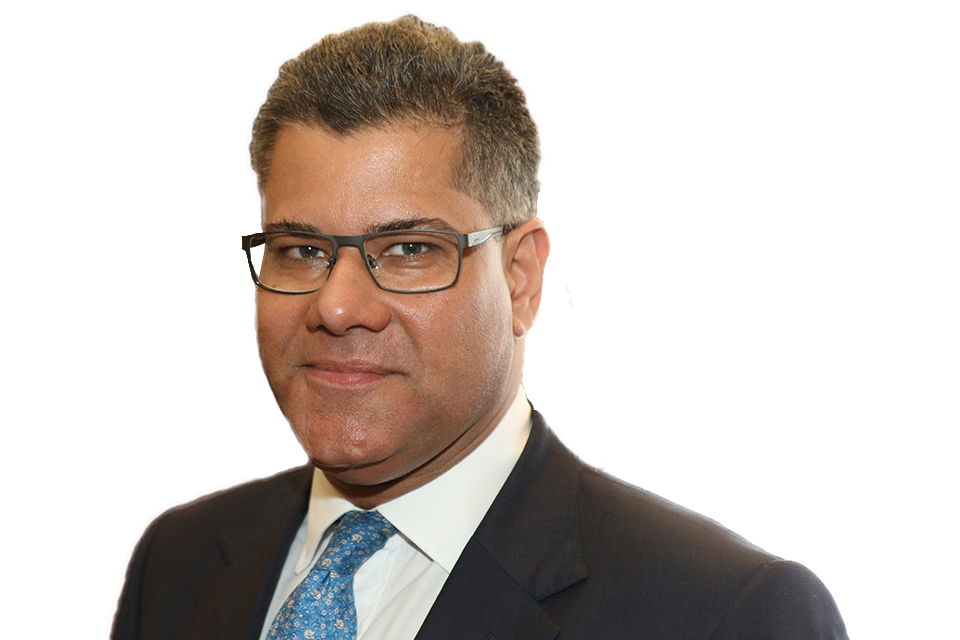The speech made by Alok Sharma, the COP26 President, at the UN High Level Political Forum on 13 July 2022.
Excellencies, colleagues, friends.
It is an absolute pleasure to be joining you today.
When we met last year, the UK co-convened a constructive discussion on effective climate adaptation, and a green and inclusive recovery from the pandemic.
Today is another important milestone.
Yes, much has changed in the last year.
We meet against the backdrop of multiple global crises, much precipitated by the Putin regime’s illegal, brutal and unprovoked invasion of Ukraine.
And many now recognise that climate and environmental security are completely interlinked with energy and national security.
And whilst countries must deal with their immediate energy needs, many have understood that our shared long-term energy futures do not lie in fossil fuels.
But even as we deal with these challenges, the central premise of last year’s session – that we must deliver a just and sustainable recovery – holds true.
Because just as the global economic situation is perilous, the science is clear that the chronic threat of climate change is getting worse.
Now, I am very pleased that the UK is at the forefront of the efforts to tackle global warming.
And last year’s G7, convened in Carbis Bay, delivered a step change in infrastructure investment, in pursuit of clean, green growth.
We have continued to lead through our “British Investment Partnerships,” and the “Clean Green Initiative,” mobilising billions, and our financial expertise, to drive clean growth around the world.
And for me it has been an incredible honour to drive this agenda forward as COP26 President.
The Glasgow Climate Pact, forged amongst nearly 200 countries, was historic.
And based on the commitments made in that Pact, and indeed outside the negotiating rooms,
I believe that we were able to say with credibility that we kept alive the prospect of limiting global warming to 1.5 degrees above pre-industrial levels; and that we had supported the most vulnerable.
We got important commitments on mitigation, particularly the call for countries to revisit and strengthen their NDCs by the end of this year.
The Glasgow Sharm-el Sheikh work programme underlined the imperative for all countries to prepare and respond to climate risks.
And, for the first time ever in these processes, the Pact recognised the need to address the issue of loss and damage substantively, and systematically.
Countries, companies and financial institutions pledged to clean up vital sectors, to end deforestation, and to accelerate the move to clean technologies.
And we did important work to scale-up climate finance, with the $100 billion Delivery Plan, the commitment to at least double adaptation finance by 2025, and work to ensure that finance flows to national and local adaptation priorities.
Financial institutions with over $130 trillion of assets on their balance sheets committed to a net zero future.
And I was delighted that we were able to announce the first “Just Energy Transition Partnership,” the South Africa JETP.
Now many of these commitments ensured we pushed forward across several of the UN’s Sustainable Development Goals as well, from “Life Below Water” to “Life On Land.”
What we achieved together in Glasgow was significant.
And I am pleased that we have seen some progress since November.
We’ve got 16 new, revised NDCs.
We’ve got a handful of new long-term strategies.
Over 2.5 billion people now covered by adaptation plans.
And extensive work to scale up and improve access to finance is continuing.
But, collectively, friends, the progress has been too limited, and just too slow.
Many of the commitments we heard in Glasgow remain just that, commitments.
Words on a page.
And all the while the evidence tells us that time is running out.
From the science of the IPCC reports, to the wildfires, droughts and floods to which the world is sadly too often witness.
So, across all the commitments we made in Glasgow, we simply must quicken the pace.
If we don’t, next year’s Global Stocktake will make clear that we are not delivering on the Paris Goals, that 1.5 degrees is moving further, and frankly irreversibly, out of reach, and that we risk going beyond our limits to adapt.
The consequences of that would be grave, for every sector, and for every country.
This, my friends, is about the immediate impact on the lives and livelihoods of many millions around the world.
So, I will continue to urge countries and companies to redouble their efforts, to ensure that their emissions targets represent the highest possible ambition, and to implement the commitments that they have made.
And I am going to convene the second Climate and Development Ministerial in the margins of the UN General Assembly.
And we will of course continue to engage with our friends in Egypt.
In all this work, my message is a consistent one.
We do have an opportunity to build back better and greener, and to put the world on the path to a more sustainable future.
But we are running out of time.
We have to act.
And we have to act now.
Thank you.
